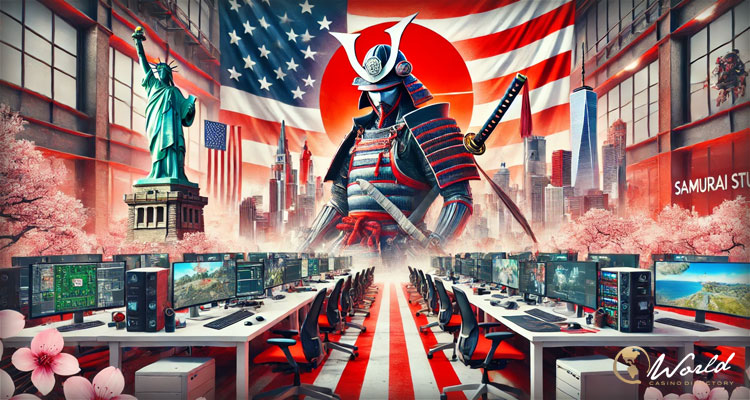NatsumeAtari, a well-established Japanese games developer, is making significant strides in the global gaming industry. This week, the company is showcasing its offerings for the first time at the Global Gaming Expo (G2E) in Las Vegas, a strategic move aimed at expanding its reach in both the land-based and iGaming markets. The company, headquartered in Osaka, Japan, brings a wealth of experience from video games and pachinko, a popular Japanese arcade game, and is now seeking to stand out in the competitive global gaming landscape.
Kevin Humphreys, NatsumeAtari’s Business Development Manager, cited by Inside Asian Gaming, highlighted the company’s intentions during the expo. “We launched into iGaming with our initial concept four years ago through our gaming brand, Samurai Studio, although those four years have mainly entailed development time and building up all the games that we have here [at G2E],” he explained. The company’s debut at G2E marks a critical point in its strategy to expand into the US and European regulated markets. Humphreys added, “We have released two games in the US regulated markets, and we are about to release a couple of games in the European regulated markets, both through aggregators.”
Bridging Cultures: Bringing Japanese Expertise to Western Markets
NatsumeAtari’s entry into the global gaming market aims to leverage its unique blend of Japanese video game and pachinko expertise. This approach could provide a fresh perspective in the iGaming sector, offering something different in an increasingly saturated market. The company’s Samurai Studio brand embodies this vision, with a focus on localizing content for Western markets while retaining elements of Japanese culture.
“The concept of our studio is to bring the expertise that we’ve got in video games and pachinko into iGaming,” Humphreys said, “and to try and localize the content more for the western markets that we are targeting while also retaining a little bit of Japanese flair.” The delicate balance between staying true to Japanese roots and catering to Western gaming preferences is central to the company’s strategy. Humphreys acknowledged that other Japanese studios have faced challenges in adapting the pachinko style for global audiences, with some games failing to meet market expectations. NatsumeAtari aims to avoid these pitfalls by focusing on creating content that appeals to local players while maintaining the distinctive edge of its Japanese heritage.
A Storied History: Natsume and Atari Unite
NatsumeAtari represents the merging of two well-known brands in Japan. Natsume, famous for its boutique video games on platforms like Nintendo, and Atari, which specializes in pachinko games, combined their expertise to create a powerful force in gaming. However, it’s essential to note that this Atari should not be confused with the American console maker. In Japanese, the word “Atari” means “to hit,” reflecting the company’s commitment to creating impactful gaming experiences.
NatsumeAtari has already made a name for itself in the land-based gaming space, developing around 20 games, including the well-received Marilyn Monroe series in collaboration with Australian slot machine supplier Ainsworth. Despite these successes, the company sees even more potential in the rapidly expanding iGaming market, particularly in the US and Europe.
Opportunities in Regulated Markets
The expansion of iGaming across the US, alongside the continued strength of European markets, presents an exciting opportunity for NatsumeAtari. The company is keen to capitalize on this growth while maintaining a focus on regulated markets. However, the future in Asia remains somewhat uncertain. While NatsumeAtari is monitoring the regulatory environment in the Philippines and keeping an eye on developments around Osaka’s Integrated Resort (IR) project, these opportunities are still years away from materializing.
For now, the United States market is a primary focus. NatsumeAtari’s presence at G2E Las Vegas underscores its commitment to growing its brand and making a mark in the iGaming industry. “It’s our first time exhibiting and we want to work more on the sales and marketing side,” Humphreys shared. The company has traditionally focused on game development, but as it grows, it is now shifting towards being more proactive in marketing and expanding its footprint in the global market.



